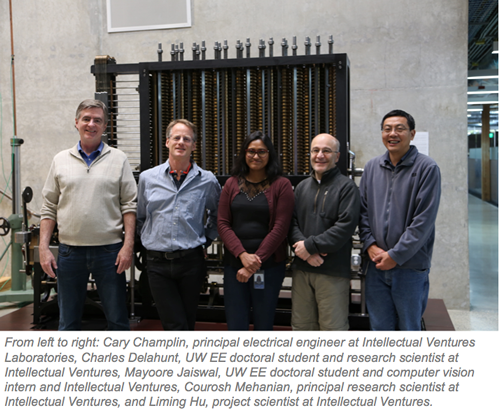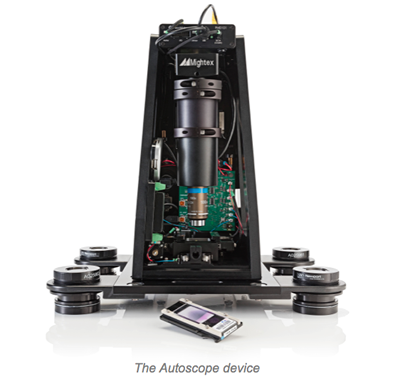News & Events
EE Students Help Develop Device to Combat Malaria
 Mayoore Jaiswal, a doctoral student in the Department of Electrical Engineering (EE), wants to build something that has a positive impact on someone’s life. She has utilized her electrical engineering expertise to help combat malaria, a disease that affects over 200 million people annually.
Mayoore Jaiswal, a doctoral student in the Department of Electrical Engineering (EE), wants to build something that has a positive impact on someone’s life. She has utilized her electrical engineering expertise to help combat malaria, a disease that affects over 200 million people annually.
“I wanted to work on a meaningful project,” Jaiswal said. “I grew up in Sri Lanka, and I have first-hand experience that malaria is a threat.”
For the last several months, Jaiswal and EE doctoral student, Charles Delahunt, have worked with Intellectual Ventures (IV) and the Global Good Fund to develop Autoscope, a low-cost, portable and automated device for malaria diagnosis and drug resistance studies.
According to the World Health Organization, in 2015, there were 214 million cases of malaria worldwide and about 438,000 deaths, mostly children in Sub-Saharan African countries. Microscopy – the method of identifying malaria parasites in the blood– remains the mainstay of current diagnostic methods.
However, in order for accurate diagnosis, this method needs to be operated by sufficiently-trained microscopists. Because the disease is deeply prolific in some of the poorest areas of the world, there is a shortage of professionals available for diagnosis.
Autoscope would fulfill the need for microscopists, lending an opportunity for widespread diagnosis and treatment. After automated scanning and analysis, the device returns a report that includes a diagnosis, estimated parasitemia (or quantity of parasites) and parasite thumbnails to be verified by medical professionals.
 During the course of their work, Jaiswal and Delahunt have investigated detection algorithms for Autoscope, applying multiple stages of machine learning, deep neural networks and computer vision techniques.
During the course of their work, Jaiswal and Delahunt have investigated detection algorithms for Autoscope, applying multiple stages of machine learning, deep neural networks and computer vision techniques.
The Autoscope is being deployed in multiple field trials in malaria-endemic areas.
“We have to go through multiple stages of testing” Jaiswal said. “Another component we are looking at is how to extend Autoscope to other diseases, using it for blood diagnostics and for analyzing drug resistance in malaria.”
For Jaiswal, Autoscope is the first step on a career dedicated to improving lives. Using her engineering degree to make global impact is her ultimate goal.
“From a young age, I was fascinated with building things,” Jaiswal said. “That’s what got me interested in engineering. Being able to use these skills to improve the lives of people throughout the world is incredible.”
See also:





